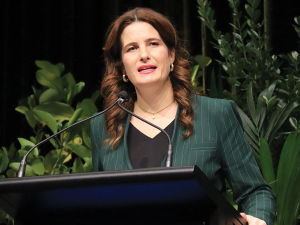Local Government New Zealand (LGNZ) president Sam Broughton told Rural News that it would have been a waste of time and resources for councils to implement requirements they know will be repealed later.
“More substantial RMA reform is desperately required, and LGNZ will continue to work with the Government on this,” says Broughton.
The Government plans to introduce the first RMA Amendment Bill in Parliament next month.
RMA Reform Minister Chris Bishop says the RM Bill 1 focuses on targeted changes that can take effect quickly and give certainty to councils and consent applicants, while new legislation to replace the RMA is developed.
These include amending stock exclusion regulations in relation to sloped land, repealing intensive winter grazing regulations and suspending the NPS-IB requirement for councils to identify new Significant Natural Areas (SNAs) for three years.
Agriculture Minister Todd McClay says Cabinet has agreed changes to stock exclusion and winter grazing regulations representing a move to a more risk-based, catchment-focussed approach.
“We’re proposing to remove the problematic and contentious low slope map and for regional councils and farmers to determine where stock need to be excluded, based on risk. The focus is on farm-level and regionally suitable solutions. This will reduce costs for farmers.
“Importantly, effective non-regulatory measures are already in place to support the continued improvement of winter grazing practices going forward. Sector groups have confirmed their continued and collective commitment to work alongside farmers and regional councils to ensure good outcomes.”
“Regional councils tell us there have been significant improvements in winter grazing practices, with farmers changing where they plant fodder crops and how they manage winter grazing. The national requirement for farmers to obtain prescriptive and expensive winter grazing consents is being removed in time for the 2025 season, and instead being managed through good practice and regional council plans,” McClay says.



















